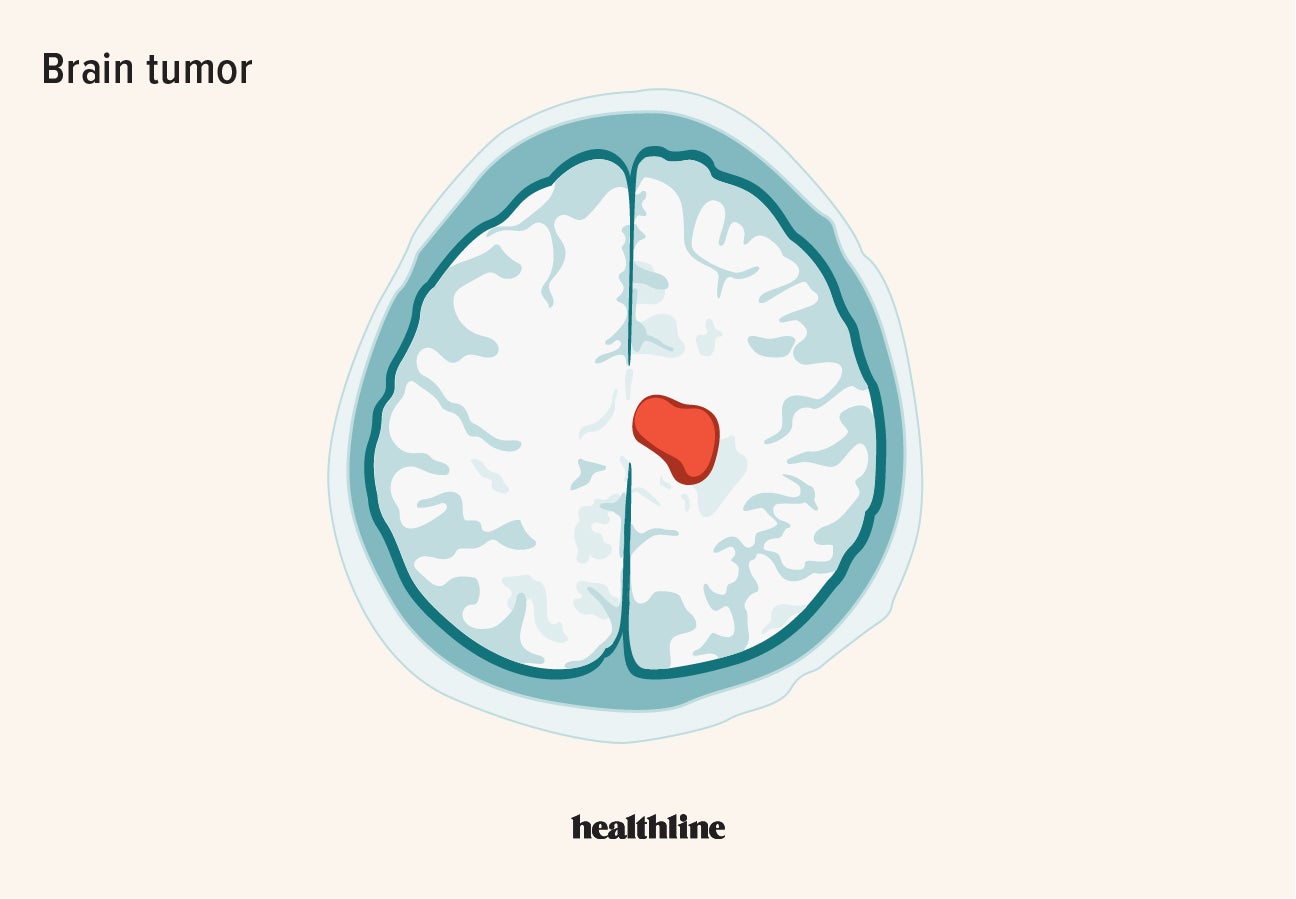Can Your Eye Doctor Spot A Brain Tumour? The Surprising Truth About Routine Eye Exams
When you think about an eye test, your mind probably jumps straight to getting new glasses or checking if your prescription has changed. While that's certainly a core part of the experience, an eye examination is about so much more than just what you can see. In a remarkable turn of events, your routine visit to the optician could potentially uncover something far more serious than just blurry vision: a brain tumour.
Yes, it's true. Eye tests can sometimes detect brain tumours. In fact, they can even spot brain tumours before there are any noticeable symptoms, making routine eye checks an incredibly powerful tool for early diagnosis. This surprising capability highlights the critical role of eye health in identifying broader health concerns and getting timely care.
More Than Just Glasses: The Comprehensive Eye Exam
Your eyes are often called the "windows to your soul," but they are also incredible windows into your overall health. An optician's comprehensive eye exam doesn't just assess your visual acuity; it also involves a thorough inspection of the structures within and around your eyes. This allows them to spot early indicators of various medical conditions.
Many common but treatable medical conditions can be first detected within the eye, such as:
- Diabetes
- High blood pressure
- High cholesterol
Beyond these common ailments, an uncommon but serious condition like a brain tumour can also leave tell-tale signs in your eyes, which a trained optometrist is equipped to recognize.
How Brain Tumours Affect Your Eyes
The connection between brain tumours and eye health lies in their proximity and the intricate network of nerves that control vision. Brain tumours can exert pressure on the visual pathway, which includes the optic nerves, the chiasm (where optic nerves cross), and various parts of the brain responsible for processing visual information. This pressure can lead to a range of visual symptoms, some of which can be subtle at first, but others more noticeable.
Common Visual Symptoms Caused by Brain Tumours:
- Blurry Vision: Often a general symptom, but if persistent or worsening, it can be a red flag.
- Double Vision (Diplopia): Caused by pressure affecting the nerves that control eye movement.
- Loss of Peripheral Vision: A tumour pressing on specific parts of the visual pathway can lead to blind spots or a narrowing of your field of vision.
- Unusual Swelling or Pressure on the Back of the Eye: This is often seen as papilledema, swelling of the optic disc, which is a key sign of increased intracranial pressure.
- Changes in Optic Nerve Colour: Brain Tumour Research reports brain cancer can cause symptoms in one or both eyes, such as changing colour of the optic nerve due to damage or pressure.
- Dilation of the Pupil: An unusual or persistent dilation of the pupil in one or both eyes can be another indicator.
These changes are sometimes subtle, but an optometrist may be able to recognize key signs of a brain tumour, like unusual swelling or pressure on the back of the eye, during a routine examination.
Real-Life Stories: Opticians Making a Difference
The idea that an eye doctor can detect a brain tumour isn't just theoretical; it's a reality that has changed lives. In some cases, an optician may be the first to detect a problem, leading to crucial early diagnoses.
Consider the story of Steve Gilmour, whose optician's appointment led directly to a brain tumour diagnosis. His experience underscores the immense importance of eye health in early detection. Similarly, Sarah Cardwell's journey, which she shares with Brain Tumour Research this National Eye Health Week, highlights how a routine optician’s appointment led to the discovery of her condition. Another powerful example is Jane, an optician spotted brain tumour symptoms in her, leading to an important diagnosis. Her story and experience serve as a testament to the vigilance of eye care professionals.
These individual stories demonstrate that the seemingly simple act of getting your eyes checked can have profound, life-saving implications. Thanks to an optician's vigilance, patients were able to receive critical diagnoses, leading to necessary treatments like MRI scans and, in some cases, even surgeries, ultimately improving their prognosis and quality of life.
The Optician's Role in Early Detection and Referral
So, can an eye doctor detect a brain tumour? An optometrist (also known as an optician) can check for blurred vision and monitor unusual pupil dilation and the colour of the optic nerve. They are trained to identify anomalies that fall outside the norm, which could indicate a more serious underlying condition.
It's important to understand that while an optician can spot potential signs, they do not diagnose brain tumours. Their role is to identify suspicious findings and, if necessary, make an urgent referral to a specialist for further investigation, such as an MRI scan. This prompt referral is critical for an earlier diagnosis of brain and central nervous system tumours.
In fact, the medical community is increasingly recognizing and formalizing this crucial role. Back in 2015, South Tees NHS Foundation Trust in the north east of England became the first NHS trust to test if opticians could play a role in spotting brain tumours earlier. This pioneering initiative has paved the way for new protocols, allowing optometrists to make direct patient referrals to specialist neuroscience services, leading to significantly earlier diagnoses.
What to Expect During an Eye Exam (and What They Look For)
During your comprehensive eye exam, your optician will perform several tests that can help detect potential signs of a brain tumour:
- Ophthalmoscopy/Funduscopy: Using specialized instruments, the optician looks at the back of your eye, including the optic nerve and retina, checking for swelling (papilledema), changes in blood vessels, or optic nerve colour changes.
- Visual Field Test: This test assesses your peripheral vision, helping to identify any blind spots or areas of vision loss that might indicate pressure on the visual pathways.
- Pupil Reaction: The optician will check how your pupils react to light, looking for any abnormalities in size, shape, or response.
- Eye Movement Test: Assessing how well your eyes move together can reveal issues with the nerves controlling eye muscles.
These tests, combined with a thorough history of your symptoms, allow the optician to piece together a comprehensive picture of your eye health and flag any concerns that warrant further medical attention.
The Undeniable Importance of Routine Eye Checks
The surprising capability of eye tests to tackle brain tumours underscores the critical role of eye checks in identifying health concerns and getting timely care. It’s a powerful reminder that an eye exam is not just about vision correction; it’s a vital part of your overall health maintenance routine.
Regular eye examinations, even if you feel your vision is perfect, can serve as an invaluable early warning system for a range of serious health conditions, including brain tumours. Early detection often leads to more effective treatment options and better outcomes. Don't wait for noticeable symptoms to appear; prioritize your eye health and schedule routine check-ups.
Final Summary
In conclusion, the answer to "can opticians spot brain tumours?" is a resounding yes. While they don't provide a definitive diagnosis, trained optometrists can identify key signs and symptoms of brain tumours during routine eye examinations, often before other noticeable symptoms emerge. This crucial ability, demonstrated by real-life stories and supported by medical initiatives, highlights the profound importance of regular eye check-ups as a frontline defense in early disease detection. Prioritizing your eye health is not just about clear vision; it's about safeguarding your overall well-being and potentially detecting life-threatening conditions early.

Frontiers | A new era for optic pathway glioma: A developmental brain

Brain Tumor: Types, Risk Factors, Symptoms, and Treatment

Optic neuritis | pathology | Britannica